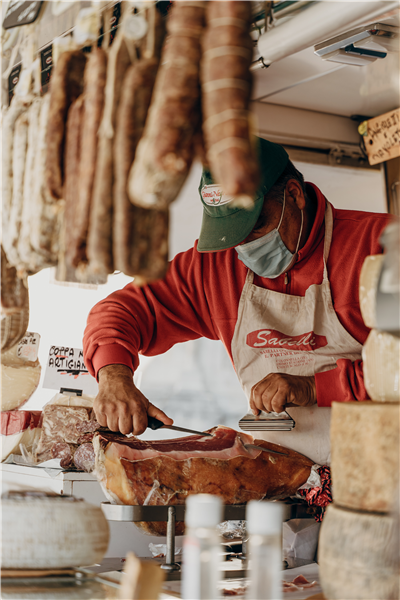Food industry grapples with supply chain woes
Published: Tuesday, May 10, 2022
Supply chain woes continue to wreak havoc on the food industry, raising concerns over food quality, safety and placing newfound emphasis on traceability systems.

Both retailers and food manufacturers are struggling with the ripple effects of the ongoing lockdown in Shanghai, trade disruptions in the Black Sea region, fuel price shocks and widespread port congestion and freight delays, notes Eskort chief executive officer Arnold Prinsloo.
“Global turmoil raises the risk that food will not be distributed swiftly, which in turn risks outbreaks of contamination and food-borne illnesses,” says Prinsloo.
Prinsloo adds, “There’s a saying in the investment world that when the tide goes out, you can see who has been swimming naked. Likewise, in the food industry, it’s never been more important for manufacturers and producers to be able to track and monitor ingredients every step of the way to ensure consumer health and safety.”
The World Health Organisation estimates that as many as one in ten people globally, or 600 million individuals fall sick each year after eating contaminated food — a number, which could skyrocket without the necessary food-management controls.
As a result of growing pressure on the industry, the global food traceability market is therefore expected to grow an annual average of 9.3% over the next three years, reaching a total value of some R325 billion by 2025.
“Traceability also works to optimise supply chains through measuring food losses and identifying weaknesses in supply chains. This significantly reduces the risk of food safety issues or product recalls and enhances efficiency. It’s a win-win for consumers and companies,” says Prinsloo.
Stringent control measures
Demonstrating the level of detail demanded by well-constructed traceability systems, Eskort’s own systems have been designed to monitor the smallest possible batches which are allocated unique serial numbers. This code captures a range of details such as the:
- individuals responsible for packing product boxes
- time boxes were packed
- individual raw materials used, and
- origins.
“For pork products, this enables us to trace the meat all the way back to the individual pigs raised on specific farms,” states Prinsloo.
“Where many companies take a broader approach by allocating a week’s production to a batch, ours are deliberately smaller for greater product control. This investment not only means greater food safety benefits for customers but also reduces the overall risk in terms of possible recalls,” Prinsloo adds.
To prevent any risk of cross-contamination between suppliers and farms, trucks from different farms are prohibited from entering their manufacturing premises at the same time and are disinfected before entering or leaving.
Eskort maintains strict compliance with Pork 360 standards for improving animal welfare and enhancing biosecurity throughout value chains.
It also adheres to the FSSC 22000 international food management system accreditation. This includes:
- strict requirements for environmental and product testing
- record-keeping
- temperature controls
- fraud prevention, and
- product tampering protections.
“We have an onsite laboratory for daily environmental testing, and we also submit raw material samples to an external laboratory for independent verification. All proteins need to be tested before use to prevent food fraud and both our plants are under full camera surveillance,” he notes.
Prinsloo concludes, “The costs involved are considerable, but absolute transparency and safety is a 'make or break' for food brands. Far from being a regulatory burden, investing in more rigid controls and systems represents a strategic opportunity to generate greater value for households and businesses.”
